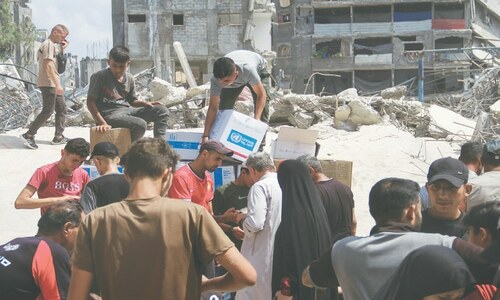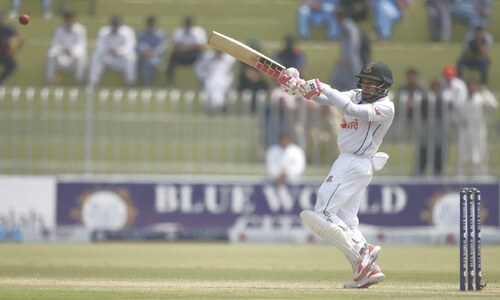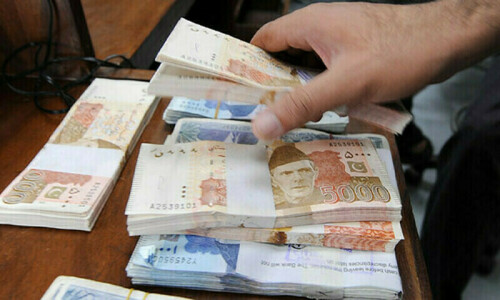QUETTA, Nov 11: Pakistan has no plan to reopen its border with Afghanistan for frequent entry of all Afghan refugees into the country as it was already bearing the burden of around three million refugees for the past two decades.
“We have allowed only women, children, old folk and the sick to cross into Pakistan for shelter,” Balochistan’s Home Secretary, Mr Azmat Hanif Orakzai said at a press conference here on Sunday, which was also addressed by Mr William Sakataka, head of the UNHCR sub-office, Quetta.
The Pakistan government has decided to set up camps close to the border areas so that the refugees could be repatriated once the situation improved in their country, he said.
“No new refugee would be allowed to stay with the old refugees or in old camps,” he declared, adding that the new ones would be restricted to their camps.
Islamabad has asked the UNHCR to provide relief packets to the Afghans inside Afghanistan and establish camps there to stop their influx into Pakistan, he said.
The UNHCR officials have agreed to launch a survey for establishing camps for the internally displaced persons inside Afghanistan, he said.
The UNHCR officials and some other organizations have, however, some reservations concerning establishment of refugee camps inside Afghanistan and their security, he added.
As regards the security concern, the Taliban authorities have assured the UNHCR and other NGOs that they would be protected whenever they started relief operations inside Afghanistan, Mr Orakzai said.
Many NGOs, including the Saudi Red Crescent, Edhi and Islamic Relief Organization have already established camps in Spin Bolduk township of Afghanistan and are not facing any security threat, the provincial home secretary noted. Some 3,000 tents have been pitched in the township, with more and more NGOs chipping in with relief supplies.
The government has launched a campaign in Quetta, Pishin, Qila Saifullah and Zhob in search of those Afghans who crossed into Pakistan through unfrequented routes and are now living in old refugee camps or with their relatives.
“We have enlisted help of Afghan refugees’ elders to spot the new refugees in the old camps so that they could be shifted to the Roghani camp,” Mr Orakzai said.
In Killi Faizo camp, 3,160 new refugees have been registered, of whom 70 per cent constitute women and children and the rest the old folk, he said in reply to a question about the new refugees entering Pakistan.
The shifting of Afghan refugees from Killi Faizo camp has been started and 50 families sent to Roghani camp, some 10km east of Chaman, on Sunday, Mr William Sakataka said.
Expressing his organization’s reservation about setting up of camps inside Afghanistan, he said relief agencies’ personnel were not secure across the border.
However, the UNHCR was assessing the situation and exploring the possibility of establishing camps inside Afghanistan, he said.
“But no decision in this regard has so far been taken,” he hastened to add.
















































Dear visitor, the comments section is undergoing an overhaul and will return soon.